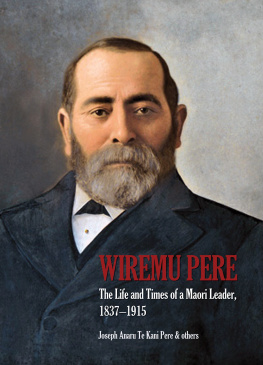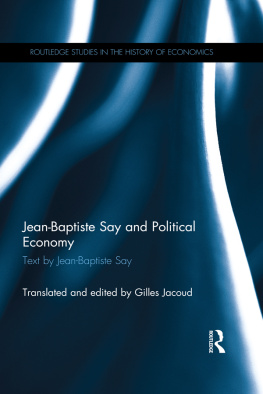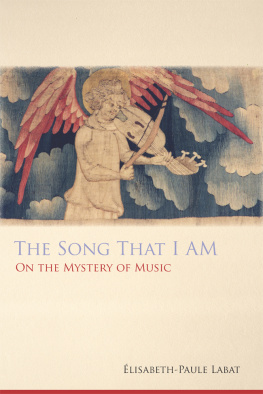BY
PHILIP GOSSE
T HE story which follows is taken from the memoirs of a very remarkable character.
The reader to whom Pre Labat has hitherto been a stranger may prepare himself to be introduced to an extremely witty, charming and companionable person.
To few priests can a life so full of adventure, excitement and interest have been granted than to this French missionary who sailed from Marseilles in 1693 at the age of thirty to take up his duties in the French West India Colonies.
To being a serious historian Pre Labat can make but little claim, the value of his memoirs lying rather in his store of picturesque and curious details about the lives and habits of the inhabitants of the West Indies, at the end of the seventeenth century.
Probably his most interesting observations are those which describe the lives and activities of that wild brotherhood, the Buccaneers. These ruffians, to whom the cutlass came more readily than the pen, were not given to recording their deeds or misdeeds on paper, although what we know of them is largely due to four books written by members of that amazing fraternity. The chief of these pirate authors is Alexander Esquemeling, a Flemish barber-surgeon, who sailed with the buccaneers for several years, and gave his or their story to the world in a book entitled The History of the Bucaniers of America: a blood-thirsty narrative, but one, as far as can be judged, both accurate and reliable.
Then there was Mr. Basil Ringrose, gent (as he is careful to describe himself on his title-page], the author of The Dangerous Voyage and Bold Attempts of Captain Bartholomew Sharps published in London in 1685, as a second volume to Esquemeling's work.
Another buccaneer surgeon, Lionel Wafer, wrote a very interesting book about his adventures in Panama, which was published in 1699.
One other filibuster, and the greatest of them all, wrote a book of four volumes entitled A Voyage Round the World. This was the naturalist buccaneer, Captain William Dampier, but only a part of his narrative concerns his adventures with the buccaneers.
Apart from these four authors, who were each professional pirates, the most valuable information we get is from the pen of Pre Labat. It is in the writings of the French Jesuits, Dutertre, Charlevoix and Labat that the historian must turn for first-hand accounts of the French Antilles; but of these three, Labat tells us most about the buccaneers.
Because of this weakness on the part of the priest for these filibusters it may not be out of place to give here a short account of the origin and rise of these strange and sinister freelances who styled themselves les Frres de la Coste.
The place of their birth was Hispaniola, the second largest and the richest in soil and gold of all the West Indian Islands. When first discovered by Columbus he reported that the island contained a population of about two million aborigines. After thirty years of Spanish rule these natives had been crushed out of existence by the cruelty of their masters in their greedy quest for gold.
Then came the discovery and conquest of the vast and rich countries of Mexico and Peru. Here were to be procured, with little trouble, gold, silver and emeralds in abundance, so that before long Hispaniola, by now almost depleted of wealth, found herself deserted by the majority of her Spanish inhabitants. Great tracts of land, once under cultivation, slid back into savannah. Over these park-like tracts wandered at large vast herds of wild cattle descended from those imported years before. There were few Spanish towns or settlements left by this time, but there were large numbers of wild Frenchmen who lived by hunting the cattle and drying the meat by a process learned from the Indians, and called boucan. From this word these men got their name of Bucanier or Buccaneer.
Where these hunters came from it is difficult to say. Many no doubt were runaway sailors, shipwrecked or marooned mariners or escaped criminals. They owed allegiance to no master, spending their days hunting, skinning and drying the meat which they bartered for brandy, powder or tobacco, with the captains of passing ships.
As time went on and these men increased, the Spanish authorities decided to get rid of them, and to do this effectually they struck at the cause, and set about slaughtering the wild cattle. This they did so thoroughly that the buccaneers soon found their means of livelihood gone, so, being sailors originally, to the sea they returned to seek their fortunes.
Then the troublefor the Spaniardsbegan. By upsetting the Hispaniola beehive it was soon apparent that they had disturbed and set at large a swarm of very angry and dangerous insects.
From this time began the reign of the true buccaneers, a roving sea republic which grew and flourished and proved eventually to be the chief factor that brought about the end of the Spanish monopoly in America. These wild men, half hunter, half pirate, were wont to lie in wait for the clumsy Spanish galleons, seize them and often as not put the unfortunate crews to death. Whenever, on the other hand, the Spaniards caught the buccaneers, no mercy was shown nor expected.
Gradually the buccaneers became more numerous, more powerful and better organized. By the latter half of the seventeenth century they numbered many thousands and were led by skilful and brave commanders, and had begun to build fortified settlements on the coasts from which to sally forth on their raids and whither they returned with their plunder. The principal of these was on the Island of Tortuga, off the north coast of Hispaniola or San Domingo.
Spain, being unable herself to supply her colonists with European goods, it was but natural that others, French, English or Dutch, should do so. Stern orders had been issued from Madrid to the Governors of the various Spanish-American towns that on no account was trade to be done with foreigners on any pretext whatever. In spite of these definite orders and in spite of threats of severe penalties should these be disobeyed, trade went on under various disguises or by night.
By the close of the seventeenth century other European nations than Spanish had acquired permanent footings in the West Indies. Ever since the epoch-making discovery of Christopher Columbus in 1492 Spain had attempted by means of Papal bulls and armed force to keep all foreigners, particularly heretics, out of their American Empire. In attempting to do this she had failed, as indeed she was bound to. Instead of colonizing and developing their new and fertile lands the Spanish settlers preferred to gather wealth and riches as speedily and easily as possible by means of gold, silver and precious stones procured for them by slave labour.










